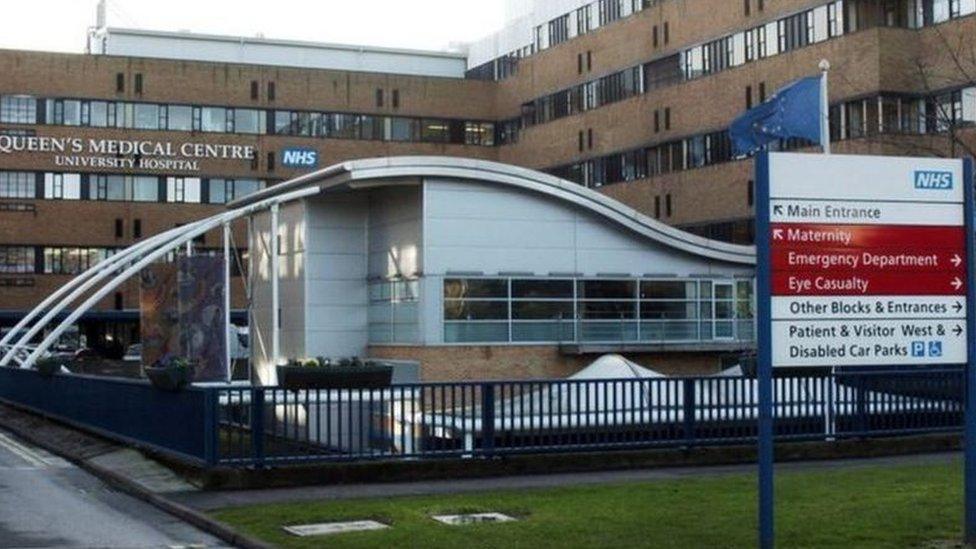Parents fear babies still at risk at Nottingham hospitals
- Published
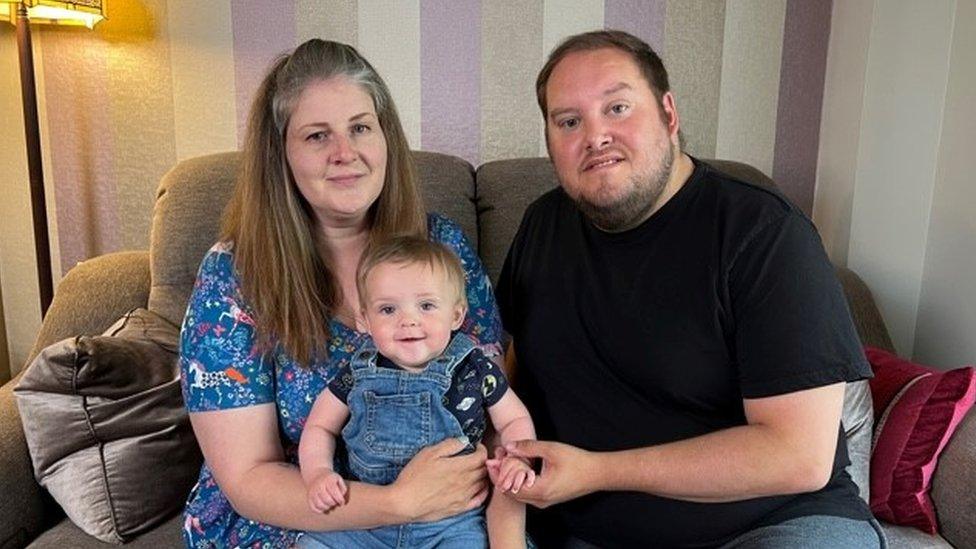
Sarah and Gary Andrews now have a nine-month-old son
The parents of a baby who died after failings by maternity staff in Nottingham say they are "very concerned" problems remain years later.
Sarah and Gary Andrews spoke after the Care Quality Commission (CQC) said significant improvements must be made at the city's maternity units.
Donna Ockenden, who led an inquiry into the Shropshire maternity scandal, has also been appointed to chair a review into Nottingham's maternity services.
It follows dozens of baby deaths.
The couple's daughter, Wynter, died 23 minutes after being born on 15 September 2019 at the city's Queen's Medical Centre.
After studying the CQC report, Mrs Andrews said: "We're very concerned. We think there's been a very long time since Wynter died, since the recommendations were made by the coroner.
"There has been a very long time for the trust to rectify these, and we feel it's concerning there are still such problems going on."
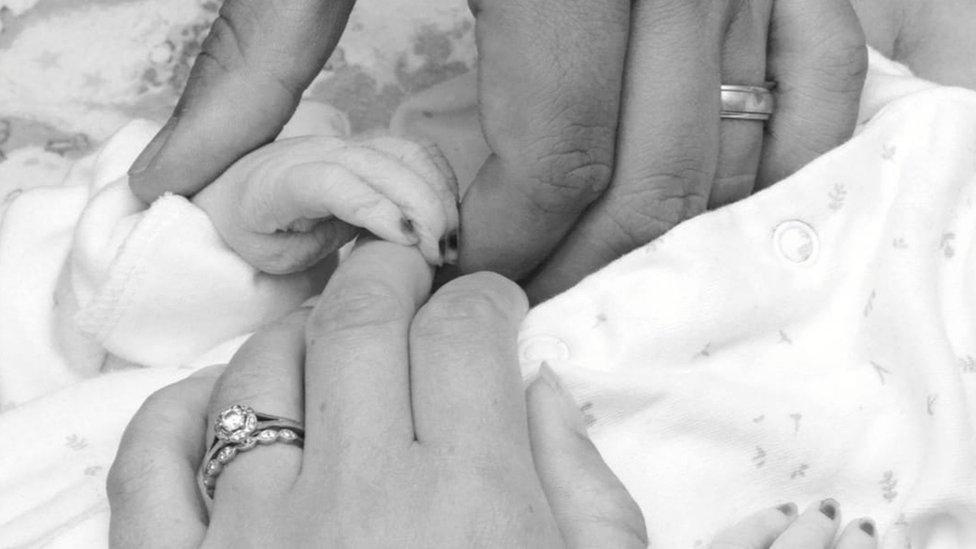
Wynter Andrews died 23 minutes after being born on 15 September 2019
NHS maternity services in Nottingham are based at the Nottingham City Hospital and Queen's Medical Centre, and were initially rated as inadequate in 2020.
The latest reports, external said maternity services at both sites, external remained inadequate overall.
In November 2018, almost a year before Wynter died, a group of whistleblowers including midwives and midwifery support workers wrote to the chair of Nottingham University Hospitals (NUH) NHS Trust.
They described "inadequate staffing" as the "cause of a potential disaster". They also said staff were "burnt out" and "working in fear".
Mr Andrews said his daughter's death was "the disaster that was foreseen".
"There's a national shortage [of midwives], which we recognise, but I think the problem at Nottingham is the problem was allowed to get so bad, I think it was in excess of being kind of 70 midwives short," he said.
"Then when you read the 2018 whistleblower letter that warned of the culture and the treatment by managers of staff, and they were leaving as a direct result, it's worrying and we're now in 2022, and we understand that actually midwives aren't happy and people have been leaving."
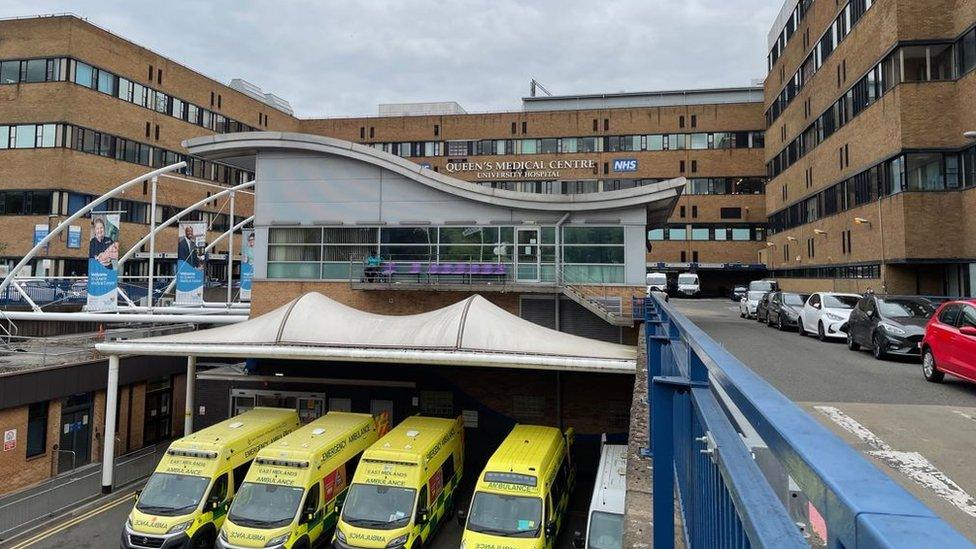
Whistleblowers raised concerns about maternity care at the Queen's Medical Centre before Wynter Andrews died
Mrs Andrews said she was "delighted" Donna Ockenden had been appointed to lead the review in Nottingham.
"We feel it's something that has been much-needed. Families need to have confidence in the review, and it needs to make real and meaningful changes going forwards," she said.
The original review, which has concluded and published its interim report, external on Thursday, had faced sustained criticism from families and campaigners over its remit and independence.
Mr Andrews said Ms Ockenden's appointment was a "beacon of light".
"It was apparent that the review that we did have, it was widely accepted that it wasn't fit for purpose, it was woefully inadequate," he said.
"She [Donna Ockenden] comes with the respect of kind of a network of bereaved families, in Shrewsbury and Telford, and she's truly independent."
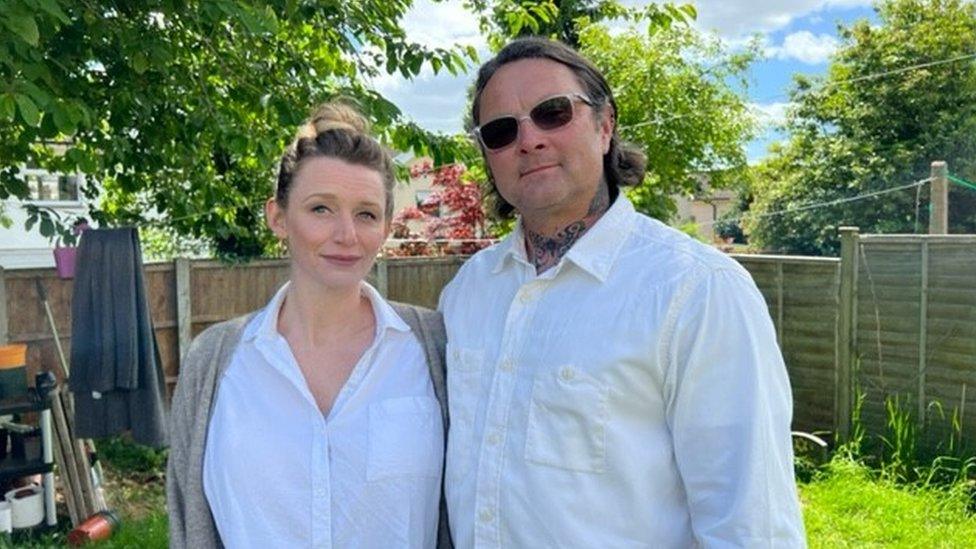
Kimberley Errington said the CQC report confirmed what she and her partner already knew
Kimberley Errington, whose son Teddy died in November 2020, said she was not surprised by the latest CQC report.
"It's a reiteration of the usual things, you know, staffing is a major problem," she said.
"It's saying what we knew, where as a lot was coming out in the press about maybe 'Oh, you know, things are getting better', or the NUH board are trying to make it seem like things are getting better, when we know it's not, so at least now it's in black and white and it's out there for the public to see."
Teddy died when he was a day old, after he had been sent home. Ms Errington said her experience in hospital was "horrendous".
"I feel like we were dumped, and we were left for 19 hours abandoned," she said.
"When I did ask for support, which I did numerous times, I was dismissed or made to feel like a nuisance.
"So by four o'clock that next morning, when they said I could go, I wanted to get out and get home so I could have some support."
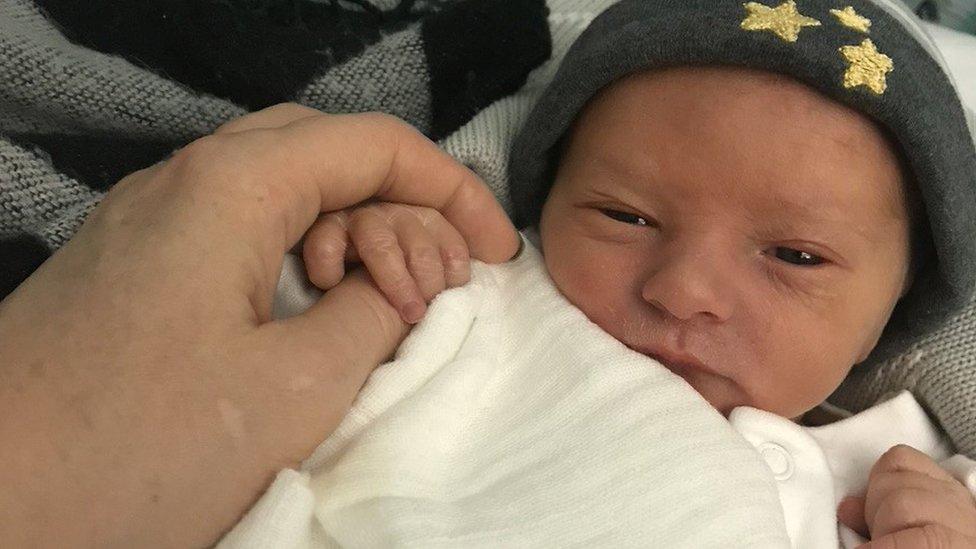
Teddy's death was recorded as "unascertained" in a narrative verdict by the coroner
Teddy then collapsed at home and was taken to the Queen's Medical Centre, where he died.
Following an inquest, assistant coroner Laurinda Bower said his cause of death was "unascertained" but midwives had failed to monitor his blood sugar levels before he went home.
She said there had been "undoubted failings" by healthcare professionals.
In response to the latest CQC report, Sharon Wallis, director of midwifery at NUH, said: "Our teams are working hard to make the necessary improvements, but recognise we have more to do and are absolutely determined to speed up the pace of change and deliver quality services for women and their families."

Follow BBC East Midlands on Facebook, external, on Twitter, external, or on Instagram, external. Send your story ideas to eastmidsnews@bbc.co.uk, external.
Related topics
- Published27 May 2022
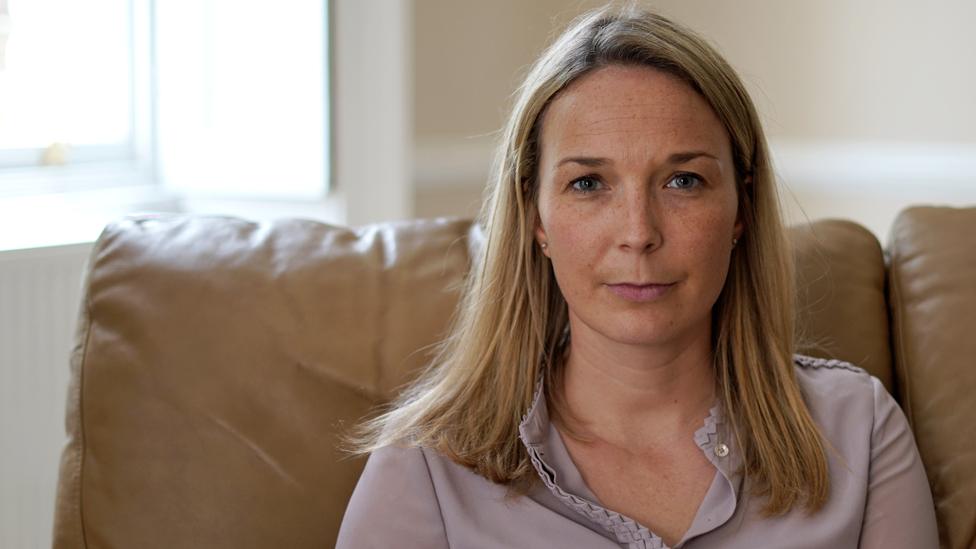
- Published26 May 2022
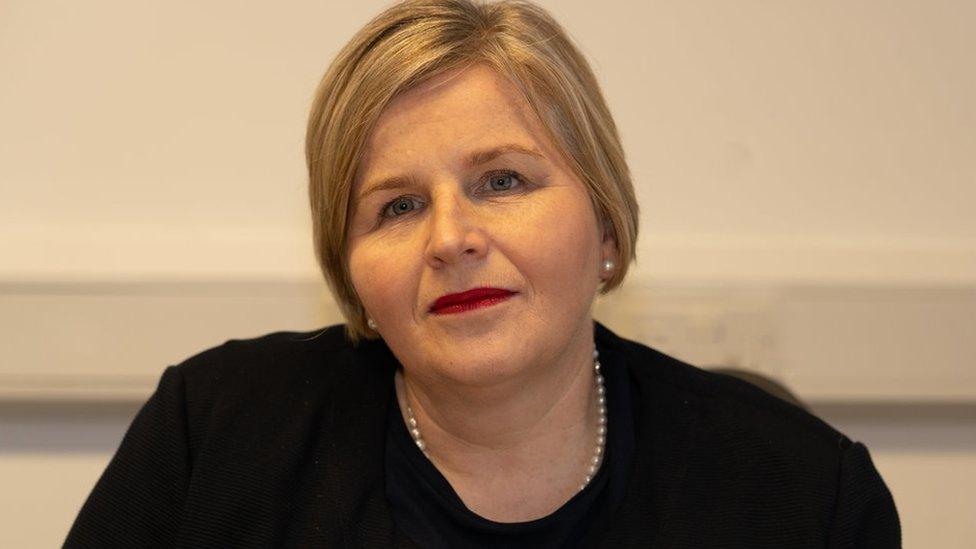
- Published20 May 2022
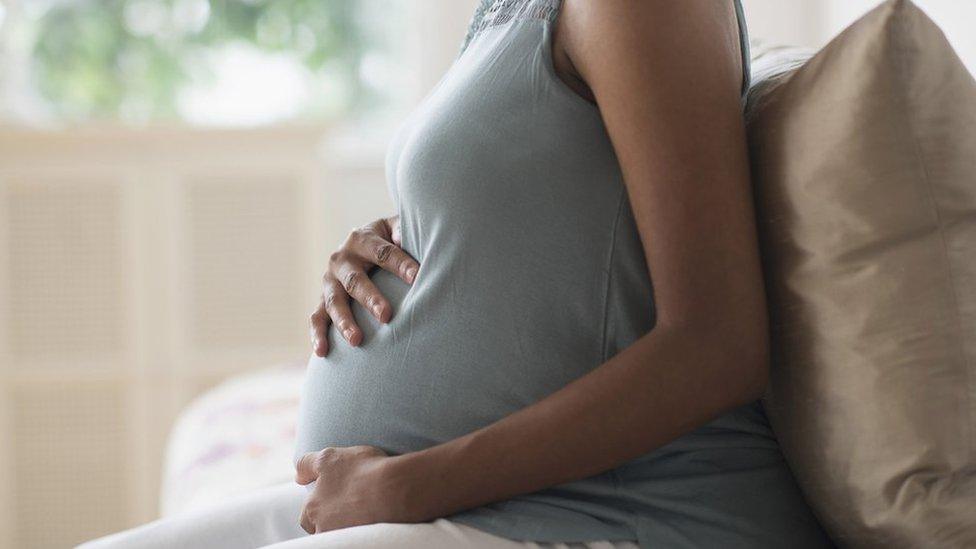
- Published4 May 2022
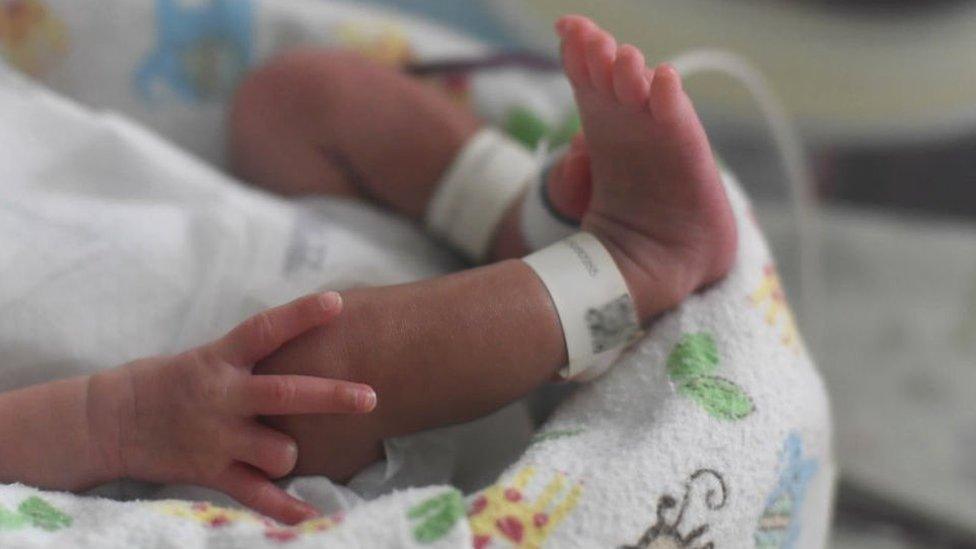
- Published26 April 2022
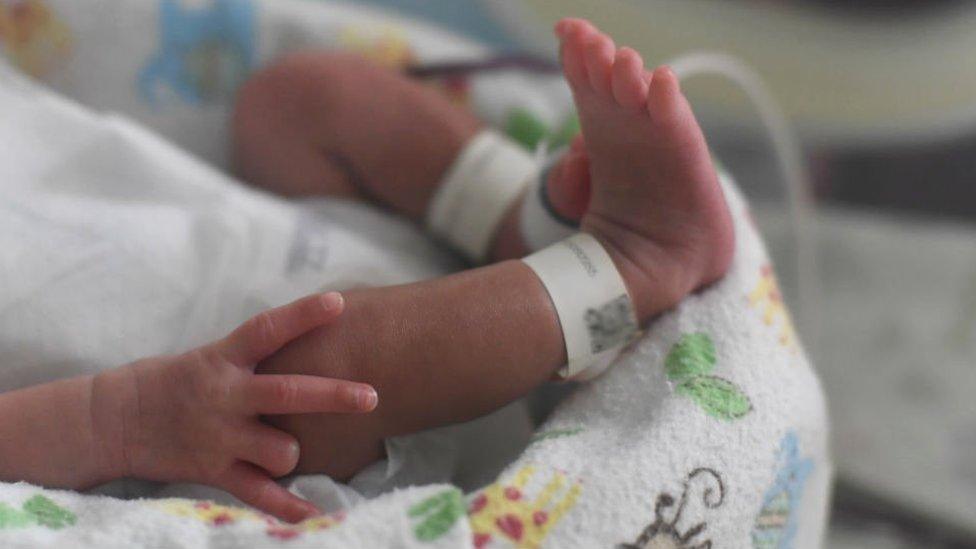
- Published22 April 2022

- Published6 April 2022
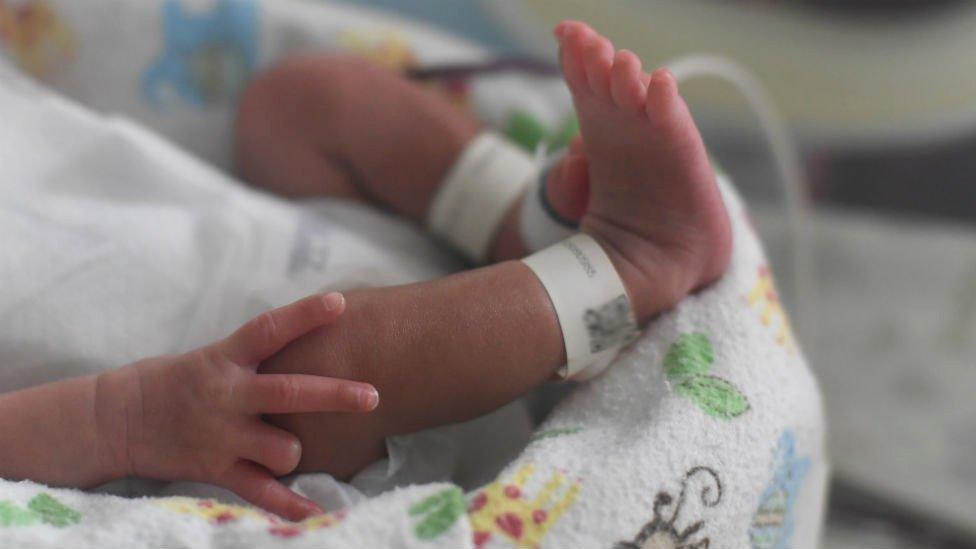
- Published25 March 2022

- Published1 July 2021
